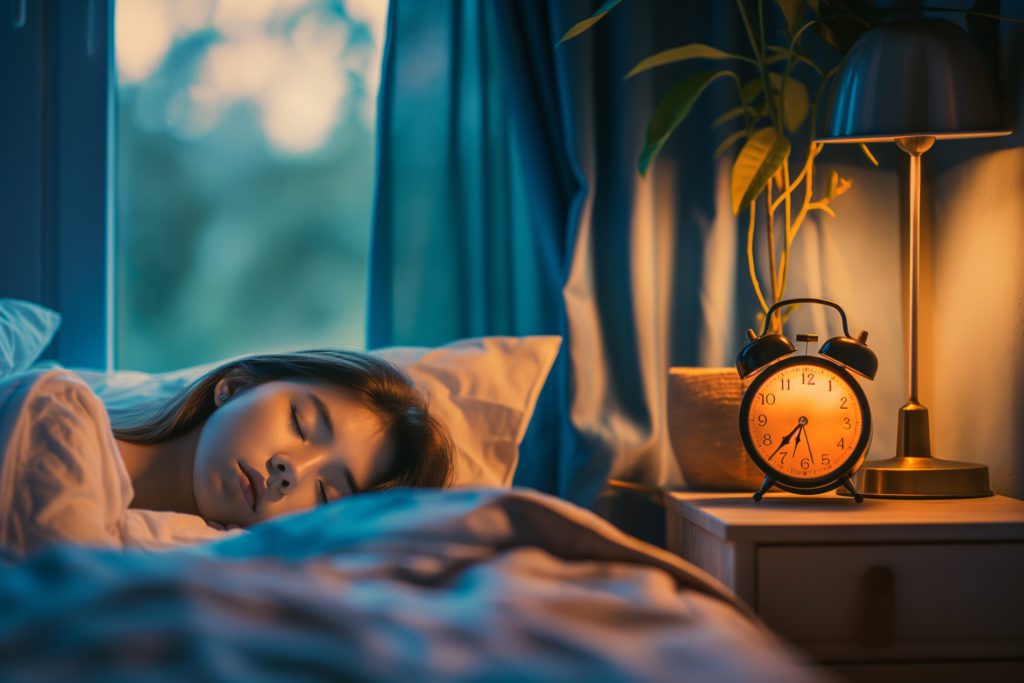
Sleep and Weekend Work: Strategies for Shift Workers and Freelancers
Work on the weekends and want better sleep? Read on to learn effective strategies for sleep for shift workers and freelancers.

If you have ever worked the weekend, you know how exhausted you feel by the time Monday comes around. You might enjoy more flexible working hours as a shift worker or freelancer, but how does this affect your sleep? Unfortunately, these working professionals find themselves with irregular circadian rhythms and challenges that prevent them from getting enough rest, even worsening their health in the process.
In this article, we’ll explore some strategies that shift workers and freelancers can use in their lives to promote better sleep. From strategic naps to work boundaries to timing your light exposure, you can take steps to ensure you’re always getting excellent rest, even if you work irregular hours. Before we get into these strategies, let’s briefly discuss some of the unique challenges that shift workers and freelancers struggle with.
The Challenges of Weekend Work for Shift Workers and Freelancers
For those who have ever worked outside of the standard 9-5 hours, you likely know the challenges that come with irregular hours. Weekend work for shift workers and freelancers can be an excellent way for them to make extra cash, but often at the cost of their sleep quality.
One study showed that those who are in non-standard employment (NSE) positions struggled with worse sleep quality and were exposed to more disturbances, like light, sound, and abnormal temperatures, that prevented them from getting adequate sleep. To combat these challenges, we have found four strategies to be the most effective for shift workers and freelancers working on weekends.
Effective Sleep Strategies to Encourage Better Rest for NSE Workers
Despite the challenges you might face with sleep, you can get more effective rest! We have found four strategies to help you encourage better rest, even over the weekend while you work. Let’s explore why each of these strategies can promote better rest for shift workers and freelancers.
1. Plan Strategic Naps
If you are a shift worker, you’re much more likely to work outside of normal hours, which can completely disrupt your sleep. For example, if you are a nurse who works overnights, you may not be able to keep the same sleep schedule as the rest of your family or potential roommates. That’s why you should try to set aside time for strategic naps.
To protect your sleep, you should plan for enough sleep on your days off or the hours that you have off from work. Even though you might want to see your family and friends during these hours, you do need to rest, even if it is just for a short but strategic nap. Studies show that a 90-minute nap followed by a 30-minute nap for those who work overnights can help put off any fatigue.
For freelancers, you might find yourself working on the weekends and needing breaks to get work done. Planning a power nap can bring you massive benefits, as even a short 30-minute nap can boost your creativity and focus and make you happy (Source: Forbes).
2. Set Boundaries on Work Hours
Shift workers might not be able to do this, but freelancers can create some informal boundaries with their work schedule. Working as a freelancer means you can work nearly any hours you prefer, but you should be mindful of letting this become too extensive. Having at least one day off per week to rest is essential to your health.
The unfortunate mindset that work comes first can deteriorate your personal time and make work and home life increasingly intertwined. Try to set some boundaries and shut work off at a particular time, not only for your sleep but for your mental health, too! If you are a shift worker, you might not be able to shut work off when you want to, but you can take steps to set some boundaries.
For example, if you are working overnight, you can make a promise to yourself to come straight home and stop thinking about work while you’re resting during the day. It might sound ineffective, but over time, you’ll notice that separating your work and home life will do wonders for your overall health.
3. Create a Relaxing Bedtime Routine
If you work on the weekends or irregular work hours, you should always prioritize creating a routine that supports your rest and recovery. Engage in some activities that relax you, like watching your favorite TV show or taking a nice bath. You can also establish the right environment during this routine to really set the right ambiance for your rest.
That means ensuring the room is dark, avoiding blue light, and making it cool and comfortable. You should never sleep in a room that is too hot or full of noise. White noise can help you sleep, but to truly relax, you need to create a relaxing bedtime routine and the proper environment to unwind and rest.
4. Time Your Light Exposure Appropriately
Shift workers and freelancers could also benefit from appropriately exposing themselves to light to keep their circadian rhythms in alignment. Studies have shown that those who work irregular hours or overnight might struggle with fatigue, but light exposure can assist with their sleepiness. Nurses demonstrated that, with 40 minutes of bright light exposure, they experienced less fatigue and could conduct their work with fewer errors (Source: Chronobiology International). So, if you struggle with fatigue due to shift work or freelance weekend work, try to engage in light exposure to keep yourself awake and reorient your circadian rhythm to its ideal schedule.
How Will You Encourage Better Sleep as a Shift Worker or Freelancer?
With all that we have discussed, you have plenty of insight into improving your sleep and overall health if you’re a shift worker or a freelancer. While it might be challenging to work irregular hours or even on the weekend, you can take action to support your well-being and productivity. If you prioritize, set boundaries, and use appropriate interventions, you can enjoy better rest and recovery! How will you support your sleep health on the weekends while you work?

Written by
Marie Soukup
Marie Soukup is a seasoned copywriter, editor, and Integrative Nutrition Health Coach with a certificate from the Institute of Integrative Nutrition (IIN). With years of experience working with brands across diverse industries, Marie is passionate about holistic health and crafting compelling content.
Download Pillow
Get help
Press & News
Legal
Connect
X (Twitter)
Company
Copyright © Neybox Digital Ltd.



